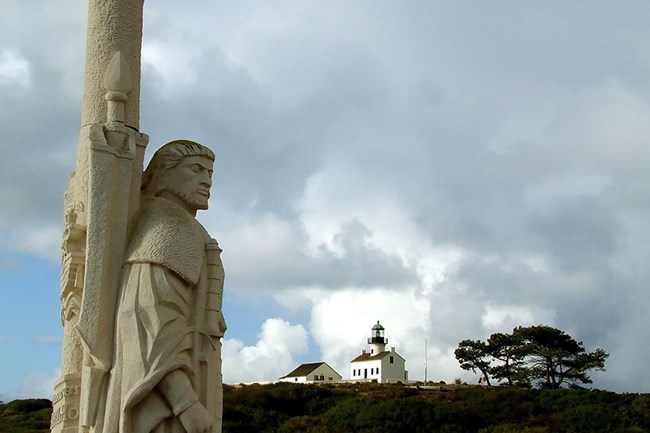
NPS Photo
National Parks along our coasts and Great Lakes preserve places where mariners launched, sailed, landed, and, in some cases, perished. These places protect the legacy of cultures and individuals who shaped our maritime history and the history of our country. Parks such as Cabrillo and DeSoto are named for some of the first Europeans explorers to set foot on this continent. Coastal parks tell of native groups such as Miwoks in California and Wabanaki in the northeast, who sailed and traded along our shores for generations. Lesser known accounts of women and African Americans who braved the oceans while making waves in societal norms are preserved at places like San Francisco Maritime and New Bedford Whaling. Tales of mariners from all different time periods and cultures (including a few pirates) that influenced our history can be explored at many of our nation’s Coastal and Great Lakes parks.
These parks also tell the story of changing navigation techniques. The technology used to navigate the world’s oceans and Great Lakes has come a long way from the days when these mariners explored and traveled great distances with only the stars to guide them. New technologies have allowed mariners to travel farther, faster, and safer and have made it possible to reach areas that were once inaccessible. Early mariners accomplished amazing feats of ocean travel with rudimentary navigation tools. Navigation changes, like many technological advances have profoundly affected our history including trade, settlement, and military capabilities. Things we take for granted today, satellites, GPS, and our abilities to navigate the globe and plumb the depths of the ocean would have been the stuff of science fiction to early mariners. National parks are places that preserve artifacts from the past and tools from the present, so that we can understand just how far we've come.
Learn More
Last updated: May 24, 2017
